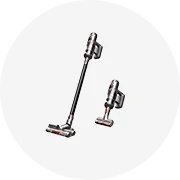

95oz Dehumidifiers For Home 720 Sq Ft Quiet Dehumidifier With Reusable Filter And Ionizer Small Dehumidifier With Drain Hose


New Dehumidifier 2023 Trending New Arrivals Customized Color 1100ml Home Air Mini Portable Small Dehumidifier




















A DIY solar dehumidifier is an innovative solution designed to tackle humidity control by harnessing solar energy. This category encompasses devices that are not only eco-friendly but also energy-efficient, providing moisture management in various settings without relying on traditional power sources.
There are several types of solar-powered dehumidifiers, each suitable for different environments. Portable units are ideal for small spaces like basements, where they help maintain air quality. Larger, more robust models are available for whole-house applications, ensuring a consistent humidity level throughout. In industrial settings, these dehumidifiers play a crucial role in preserving the integrity of goods by preventing moisture-induced damage.
The core components of a DIY solar dehumidifier include a solar panel, a condensation chamber, and a collection system. Materials used in their construction are chosen for durability and performance, often including weather-resistant plastics and metals. Innovations in solar panel technology contribute to the efficiency of these devices, allowing them to operate effectively even in less sunny climates.
The advantages of using a solar dehumidifier are manifold. They offer a sustainable way to reduce air moisture, which can help in preventing the growth of mold and mildew. By using renewable energy, these dehumidifiers also reduce electricity consumption, leading to potential cost savings and a smaller carbon footprint.
Selecting the appropriate solar dehumidifier depends on the size of the area and the extent of humidity issues. It's important to consider the water capacity and the solar panel's efficiency to ensure the unit can handle the environmental conditions it will face.
Whether for residential, commercial, or agricultural use, integrating a renewable dehumidifier can be a smart move. In agriculture, for instance, maintaining optimal humidity is crucial for crop quality and storage. A self-sufficient dehumidifier can provide the necessary moisture control without the ongoing energy costs associated with conventional units.